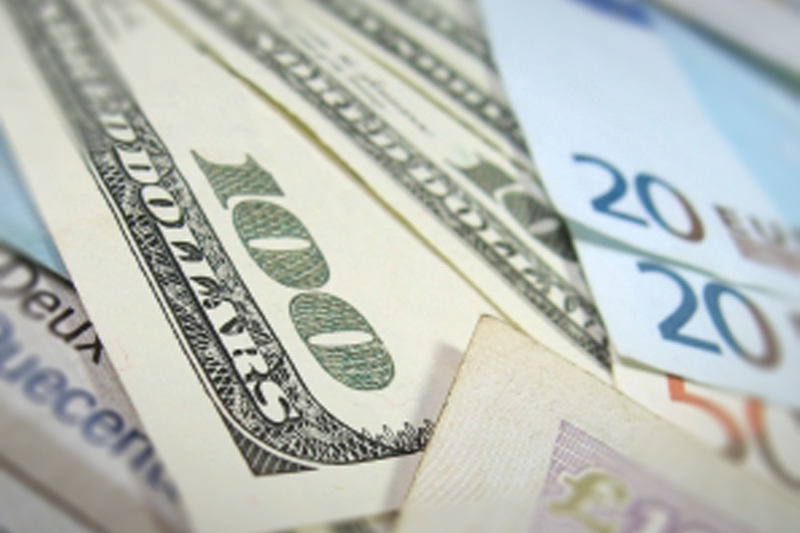Investing.com - The euro moved higher against the dollar on Wednesday, re-approaching last Friday’s two-and-a-half year highs after a senior European Bank official said there are no signs of deflation in the euro zone.
EUR/USD hit 1.3905, the highest since Friday and was last up 0.27% to 1.3897, not far from Friday’s peaks of 1.3915, the highest level since October 31, 2011.
The pair was likely to find support at 1.3842, the session low and resistance at 1.3915.
The euro was boosted after ECB executive board member Benoit Coeure said the bank did not see indication of deflation in the euro area, but it remained a possible risk.
"We don't see deflation in the euro zone. We see it as a possible risk, and we have to be ready to act against the risk if it materializes," he said.
He added that the central bank has a number of policy measures at its disposal to address the problem.
The euro strengthened broadly after the ECB left interest rates at a record low 0.25% at its policy meeting last week and implemented no new policy measures to shore up growth, despite forecasting low inflation for years to come.
Earlier Wednesday, data showed that euro zone industrial production was down 0.2% in January from a month earlier, dragged down by a 2.5% drop in energy output.
However, the underlying trend remained strong, with industrial output rising 2.1% on a year-over-year basis, after rising at an annual rate of 1.2% in December.
EUR/JPY was last down 0.07% to 142.66, moving off session lows of 142.24.
Elsewhere, the dollar remained lower against the yen, with USD/JPY down 0.28% to 102.71.
Safe haven demand continued to be underpinned by worries over the outlook for China’s economy after data over the weekend showed that exports dropped 18.1% in February and inflation slowed.
Investors were also on edge after China’s first domestic bond default last Friday fuelled fears over problems in the country’s financial sector.
Markets were also warily eyeing the standoff between Russia and the West over Ukraine after Russia said it would recognize the results of a referendum in Crimea.
Ukraine’s interim Prime Minister Arseniy Yatsenyuk was travelling to the U.S. to meet President Barack Obama on Wednesday, as diplomatic efforts to resolve the crisis intensified.
